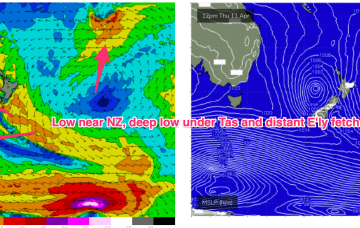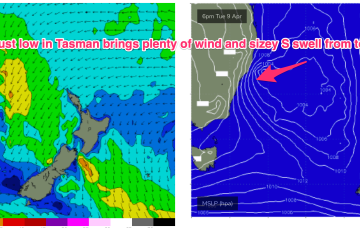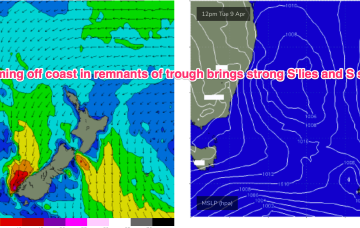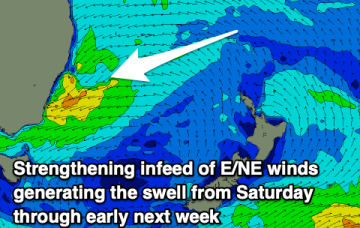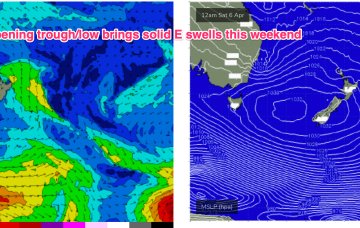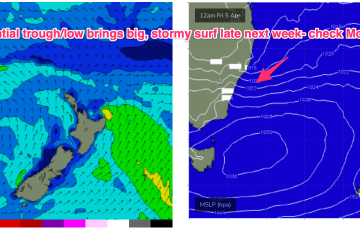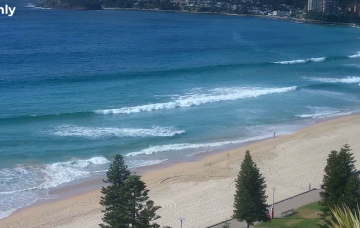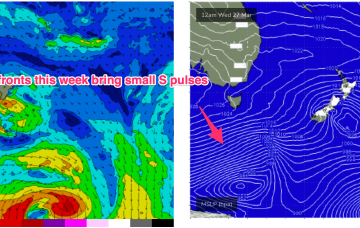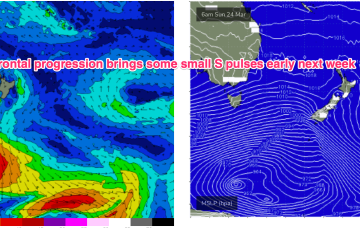There’s currently a robust Tasman low, still intensifying, moving slowly SE off the Central NSW coast down into the Tasman Sea towards New Zealand. Gales to severe gales wrapping the SW flank of the low will supply plenty of strong, improving S’ly-SE'ly swell through the rest of the week.
Primary tabs
That’s allowing plenty of space for low pressure development in the Tasman and as a front pushes through and combines with the remnants of a trough we’ll see a robust low develop through tomorrow, with gales expected close to the coast.
The moist onshore flow from this set-up is flowing into a coastal trough and interior low bringing onshore winds and rain. We’ll eventually see the low clear the coast bringing better winds Sun with some strong S swell pulses on the menu from Sun and into next week from Tasman Sea and deeper sources.
Onshore winds will strengthen over the coming days, feeding into a deepening trough. The swell will peak on the weekend as conditions slowly improve.
A complex inland trough low tied to tropical sources exits the coast as a strong high moves into the Bight. Following that a coastal trough in the Northern Tasman then deepens, likely into a surface low which may drift southwards bringing strong E swells to the entire region, possibly followed by a return S swell as the low gets captured by an approaching front.
From Wed onwards we’ll see a much more dynamic pattern in the Tasman. The inland low will exit near the Gippsland coast and conjoin with a front as a major new high pushes in behind from the Bight.
Weak coastal troughiness will contract to the North Coast on Thursday though lingering onshore SE winds are a risk north from Sydney.
For now, frontal activity is being allowed to track in a more favourable manner for S swell production so we’ll seea week of small/moderate S swell pulses leading into the Easter weekend.
For now, frontal activity is being allowed to track in a more favourable manner for S swell production so we’ll see a week of small/moderate S swell pulses leading into the Easter weekend.
S swells from frontal activity now look a notch more active next week as the W-E progression of the next high cell (and subsequently fronts) slows and allows more intrusion into the lower Tasman.

